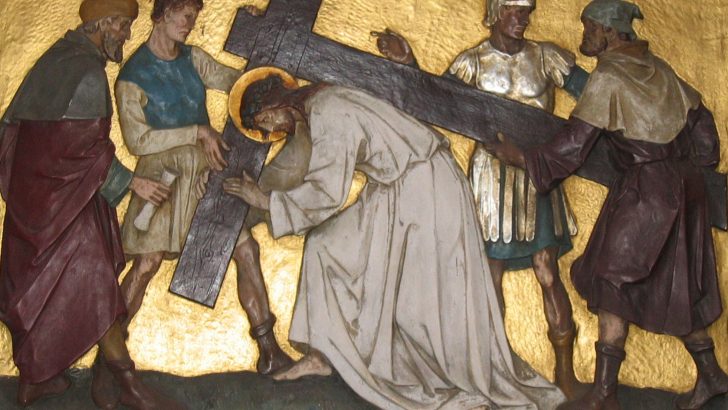Risen (12A)
This elegiac re-enactment of the aftermath of the Resurrection in Judea in 33AD as experienced by a disaffected Roman soldier is in many ways reminiscent of Barabbas (1961), the story of the thief who reached a catharsis after believing he was responsible for the death of Jesus.
The conversion of Clavius (Joseph Fiennes) from a ruthless, faithless soldier in attendance at the crucifixion of Jesus – or ‘Yeshua’ as he’s called here – to the gentle soul who bonds with the disciples, and indeed protects them from his erstwhile military colleagues, covers a similar spiritual trajectory.
Clavius is a ‘tribune’ employed by Pontius Pilate (Peter Firth) with his friend Lucius (Tom Felton) to find the missing body of ‘The Nazarene’ and thus discredit the belief circulating among his followers that he has somehow risen from the grave. The film has a brooding power and commendable sense of restraint amidst the bloodshed.
That said, there are some problems with it. The Resurrection, for example, should have been its centre-point but we’re not even shown this. Surely the rolling back of the stone and the ‘melting like snow’ of the seal placed over the ropes that kept it in place would have given the plot a huge impetus.
Script
Parts of Paul Aiello’s script are also anachronistic. We hear phrases like “rather good”, “he’s not himself” and “we’re off tonight”. Some of these lines are spoken by actors with British accents, which threw me even more. And the actor who plays Jesus, Cliff Curtis, should have been thinner. And a shade more soulful. Joyousness is good, especially in a film with the title Risen, but we could have done with more ponderousness to go with it. There are very few actors who’ve achieved this balance. (The one who springs most to mind in this respect is Enrique Irazoqui from Pier Paulo Pasolini’s The Gospel According to St Matthew.)
Firth is suitably oleaginous as Pilate, a man who conceals his fear of a Jewish revolt under a carapace of cynicism. Maria Botto’s Mary Magdalene also strikes the right note, and again much of this is due to the fact that her accent seems more of its time – and place – than some of the disciples. At times these embody the jocose modernity of the hippie-style Jesus Christ Superstar cast rather than a solemnity that would have been more in keeping with Kevin Reynolds’ moody direction – especially Bartholomew.
As cinema, Risen can lay claim to being superior to many of the Hollywood ‘sackcloth and ashes’ offerings that all too often sabotaged thoughtfulness on the altar of melodrama.
Is it too thoughtful? At times Fiennes could be accused of giving a one-note performance that lacks strength and depth but by the end, when he permits himself a cautious smile by the banks of the Sea of Galilee, one feels his underplaying of a soldier awakening to a new consciousness – his own mini-resurrection? – has been more than validated.
Good ***


 Aubrey Malone
Aubrey Malone
